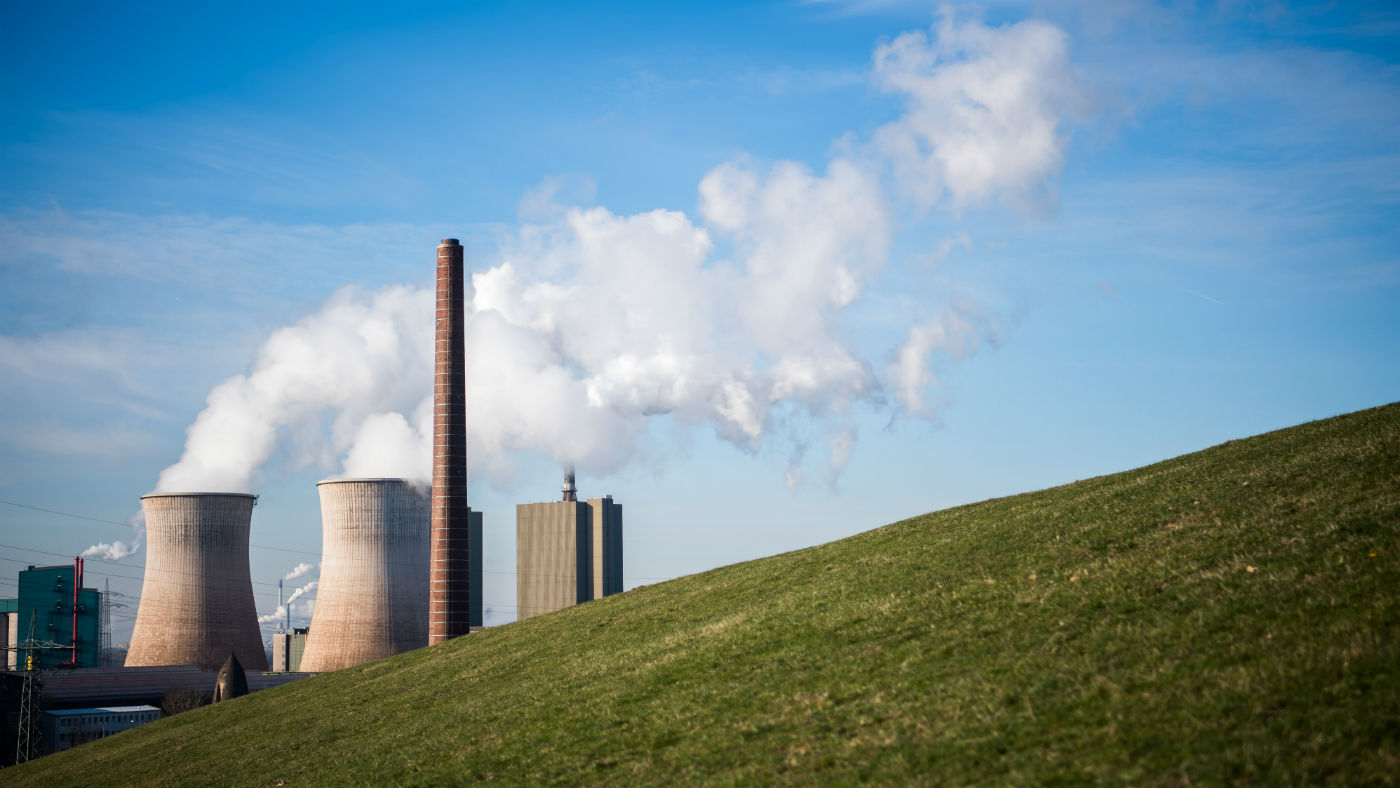Greenhouse gas levels rise to record high
UN scientists warn ‘window of opportunity’ to tackle emissions is rapidly closing as carbon dioxide reaches 3 million-year-high

A free daily email with the biggest news stories of the day – and the best features from TheWeek.com
You are now subscribed
Your newsletter sign-up was successful
Greenhouse gases which drive global warming have hit levels not seen in three million years, prompting the UN to warn the window of opportunity to tackle emissions is almost closed.
The annual bulletin on greenhouse gases from the World Meteorological Organisation (WMO) has found carbon dioxide, nitrous oxide and methane gas are still rising, while banned ozone-depleting CFCs have also seen a resurgence.
“The last time the Earth experienced a comparable concentration of carbon dioxide was 3 to 5 million years ago, when the temperature was 2 to 3C warmer and sea level was 10 to 20 metres higher than now,” said WMO secretary general, Petteri Taalas.
The Week
Escape your echo chamber. Get the facts behind the news, plus analysis from multiple perspectives.

Sign up for The Week's Free Newsletters
From our morning news briefing to a weekly Good News Newsletter, get the best of The Week delivered directly to your inbox.
From our morning news briefing to a weekly Good News Newsletter, get the best of The Week delivered directly to your inbox.
The rise in concentrations of CO2 in the atmosphere are now 46% greater than before the industrial revolution and the warming impact of these gases on the climate has increased by 41% since 1990.
Essentially, these findings “underline the fact that there is no sign in the atmosphere that efforts to cut greenhouse gases are having any success”, says the BBC.
It follows a recent report from the UN’s Intergovernmental Panel on Climate Change (IPCC) which warned that the world needed to be essentially carbon neutral by 2050.
Scientists hope these figures will sharpen minds ahead of the COP24 meeting in Katowice, Poland, next week, where countries will discuss putting the Paris climate agreement into practice and increasing their ambitions when it comes to cutting warming gases.
A free daily email with the biggest news stories of the day – and the best features from TheWeek.com
“The science is clear,” Taalas said. “Without rapid cuts in carbon dioxide and other greenhouse gases, climate change will have increasingly destructive and irreversible impacts on life on Earth.”
“The window of opportunity for action is almost closed” he added.
-
 Why are election experts taking Trump’s midterm threats seriously?
Why are election experts taking Trump’s midterm threats seriously?IN THE SPOTLIGHT As the president muses about polling place deployments and a centralized electoral system aimed at one-party control, lawmakers are taking this administration at its word
-
 ‘Restaurateurs have become millionaires’
‘Restaurateurs have become millionaires’Instant Opinion Opinion, comment and editorials of the day
-
 Earth is rapidly approaching a ‘hothouse’ trajectory of warming
Earth is rapidly approaching a ‘hothouse’ trajectory of warmingThe explainer It may become impossible to fix
-
 Epstein files topple law CEO, roil UK government
Epstein files topple law CEO, roil UK governmentSpeed Read Peter Mandelson, Britain’s former ambassador to the US, is caught up in the scandal
-
 Iran and US prepare to meet after skirmishes
Iran and US prepare to meet after skirmishesSpeed Read The incident comes amid heightened tensions in the Middle East
-
 Israel retrieves final hostage’s body from Gaza
Israel retrieves final hostage’s body from GazaSpeed Read The 24-year-old police officer was killed during the initial Hamas attack
-
 China’s Xi targets top general in growing purge
China’s Xi targets top general in growing purgeSpeed Read Zhang Youxia is being investigated over ‘grave violations’ of the law
-
 Panama and Canada are negotiating over a crucial copper mine
Panama and Canada are negotiating over a crucial copper mineIn the Spotlight Panama is set to make a final decision on the mine this summer
-
 Why Greenland’s natural resources are nearly impossible to mine
Why Greenland’s natural resources are nearly impossible to mineThe Explainer The country’s natural landscape makes the task extremely difficult
-
 Iran cuts internet as protests escalate
Iran cuts internet as protests escalateSpeed Reada Government buildings across the country have been set on fire
-
 US nabs ‘shadow’ tanker claimed by Russia
US nabs ‘shadow’ tanker claimed by RussiaSpeed Read The ship was one of two vessels seized by the US military